Christopher Miller, MBA | Specialized Wealth Management
Originally Appeared in Apartment Management Magazine
How to Identify Under-Utilized Equity
This month we are going to talk about a problem that affects many real estate investors: lower than – potential cash flow due to under-utilized equity. What does that mean? Simply that you aren’t earning the type of income that you may wish to from your investments. The most common reason for this is not knowing your cash-on-cash return.
Meet Tom
Let’s say that “Tom” has owned a rental house since 1977 that he purchased for $80,000. Today, he charges $2,700 per month for rent. They way he sees it, he is earning 41% annually on his money. ($2,700 X 12 and divided by $80,000, then rounded up.) There are two things wrong with his thinking, though:
- He is confusing gross income with his net income – the property’s expenses will decrease his income a bit. Maybe not a lot, but certainly enough to make a large impact on his cash-on-cash return calculation.
- What he bought the house for really doesn’t matter much today. To see how hard his money (his equity) is working for him, he needs to focus on what the property is worth today.
Tom’s Return On Equity
Tom is a smart investor, so he takes my advice and calculates his cash on cash return. First, he will add up all his expenses on the property: As we mentioned, they aren’t much. He has $2,500 of annual property taxes, $1,200 annually for insurance, (This being California, he sprung for an earthquake policy), and about $2,000 per year in repairs. Since he purchased the property over 30 years ago, the loan has been repaid and he owns the property free and clear. He’ll subtract his $5,700 of expenses from his $32,400 of gross income to arrive at $26,700 of net income.
Next, Tom needs to estimate the value of his equity. He does some research and estimates that he can sell the house for $650,000 today. When he divides his $26,700 of annual income by the $650,000 price of his property, Tom is disappointed to learn that he is earning just 4.1% annually on his equity!
Let’s Compare Tom’s Return To The Earning Potential From Other Properties
Since values are high in California today – even when compared to rents – that 4.1% may be pretty good for our area. If you invested in real estate for cash flow, perhaps it makes sense to look for investments that provide more of it. By looking at less expensive properties out of California, we may be able to find cash flow between 5.0% and 6.5%. Even after Tom pays a real estate broker 6% to sell his property and $1,500 of closing costs, reinvesting that $609,500 of equity in that range could bring him between $30,475 and $39,617 of annual income – quite an improvement over what he’s earning on his own.
Does It Make Sense To Make Some Changes?
For Tom’s example above, I have simplified things by choosing a single-family house. Although Tom could earn between 14% and 48% more on his equity; with these small numbers, we’re talking between $3,775 and $12,917 of additional annual income every year. Although those percentages are big, the dollar figures may not be enough to encourage investors to take action. After all – this isn’t 1977 anymore when Tom bought a 4-bedroom house in Southern California for $70,000!
This exercise is useful for investors with larger portfolios of investment properties. For example, I am currently working with an investor to sell his 4 rental homes in Austin, Texas and exchange into some properties to seek greater returns. Our goal is to double his income. I’m working with another investor to sell his $10 million portfolio of apartment properties. If we can boost his cash flow by 30%, that can be a lot of money!
With this month’s article, I’d like to get you thinking about how hard your money is working for you. Your cash-on-cash return on equity is an excellent measure of that. By using Tom’s example above, you can calculate your own return based on today’s value and see how your investments are stacking up. I have created a nice worksheet to help my investors find their own cash on cash return. If you would like a copy of it, or for any other questions, just call my office at (877) 313-1868.

